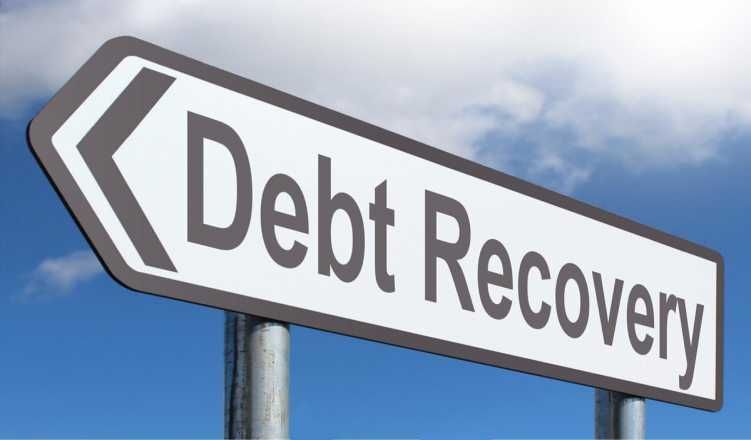
Navigating Debt Recovery in India
Introduction
Debt recovery, the process of reclaiming unpaid debts, is a crucial aspect of financial transactions. While there are various methods to recover debts, understanding the legal framework and available options is essential for a successful outcome. This guide provides a comprehensive overview of debt recovery in India, covering both legal and non-legal approaches.
Bad debt arises when a debt cannot be recouped. The words “debt collection” and “debt recovery” typically refer to the process by which a creditor hires a third party to collect debt that has been unpaid for a significantly longer period of time. In collection, the creditor attempts to recover consumer credit and loans that have not been repaid. A security is frequently provided to the creditor by the borrower; nevertheless, recovery becomes crucial when the asset that is supposed to be used as collateral for the debt cannot or will not repay the debt.
Techniques for Debt Recovery in India
There are varied legal as well as non-legal methods to recover a debt.
I) Non-Legal Debt Recovery Methods
The non-legal methods are as below-
a) Personal Contact: Direct communication with the debtor can sometimes resolve the issue without legal intervention.
b) Debt Collection Agencies: Third-party agencies specialize in recovering debts through various methods, including phone calls, letters, and personal visits.
II) Legal Debt Recovery Methods
The legal ways include:
1) Out of Court settlement: Arbitration, Mediation, and conciliation is an efficient and quick way to resolve recovery disputes outside the Court. The Arbitration and Conciliation Act of 1996 governs these quasi-judicial proceedings.
i- Arbitration: A neutral third party resolves the dispute.
ii- Mediation: A neutral facilitator helps the parties reach an agreement.
iii- Conciliation: A similar process to mediation, but with a more advisory role.
2) Civil Remedy: Any aggrieved party can file a civil suit against the defaulter in a court with appropriate jurisdiction.
3) Criminal Remedy:In serious cases, you can file an FIR with the local police station. The police can then take cognizance of the matter and initiate a criminal case.
Relevant Legal Framework
The laws that govern the debt recovery in India are:
1) Indian Contract Act 1872: Governs contractual obligations and remedies for breach. Dishonoring of contract amounts to the majority of debt recovery cases in India. One can invoke Sections 17, 18, 124, 126, and 73 for various reasons such as misrepresentation, fraud, compensation for breach of contract, etc.
2) The Indian Penal Code: Provides criminal penalties for certain types of debt-related offenses. Criminal breach of trust under section 405 and 406, cheating and dishonest misappropriation of property are some grounds that are available for any aggrieved party to approach the Court under the penal law.
3) RDDBFI Act: Recovery of Debts Due to Banks and Financial Institutions Act establishes specialized tribunals for debt recovery. If the aggrieved party is a financial institution, bank or even a private finance company, this Act provides for the establishment of various Tribunals to look into debt recovery cases.
4) SARFAESI Act: Securitization and Reconstruction of Financial Assets and Enforcement of Security Interest Act regulates securitization and asset reconstruction. The Act regulates securitization and reconstruction of financial assets. Establishment of Asset Reconstruction Companies is also one of the unique provisions of this Act
5) Negotiable Instruments Act: Deals with negotiable instruments like checks and bills of exchange. Section 138 of the Act requires a legal notice to be issued before initiating proceedings for dishonored checks.
6) Arbitration Act: Governs arbitration proceedings. When the parties expressly insert an arbitration clause or decide to adopt arbitration as means of resolving the dispute. In such cases, section 7 can be invoked for settling the matters in this quasi-judicial process
Key Considerations for Debt Recovery
A. Legal Requirements: Different legal procedures apply to various debt recovery situations. There are varied legal requirements to invoke any form of debt recovery proceedings under these Acts. For example, you can file a summary suit under CPC Order XXXVII if the debt amount is less than or equal to Rs. 10,00,000. Alternatively, you can invoke the IBC only if the other party declares bankruptcy.
B. Jurisdiction: The appropriate court or tribunal depends on the nature of the debt and the parties involved. The RDDBFI Act established Debt Recovery Tribunals and Debt Recovery Appellate Tribunals to oversee and assist in debt recovery proceedings. Later, laws like SARFAESI and IBC were enacted to further refine these tribunals’ operations.
C. Time Limits: There are often time limits for initiating legal proceedings.
Choosing the Right Approach
The best debt recovery method depends on factors such as the amount of debt, the debtor’s financial situation, and the nature of the relationship between the parties. Consulting with a legal professional can help determine the most appropriate course of action.
Conclusion
Navigating the complex landscape of debt recovery in India requires a thorough understanding of the legal framework and available options. By considering the various methods and consulting with experts, individuals and businesses can increase their chances of successfully recovering outstanding debts.
ARRMS was listed as one of the Top 25 Debt Collection Agency in 2022 by StartUpTalky.Com. Refer Debt Recovery | List of Top 25 Debt Collection Agencies (startuptalky.com)
Get in touch with us to have all your queries for debt recovery solved! For more information on the debt recovery services in India, subscribe to our blog. If you need assistance with loan recovery, contact us at +91 22-2775-2169 or email us at contact@arrms.in. You can also click here to enter your details in the Contact Form, and we will get back to you!
